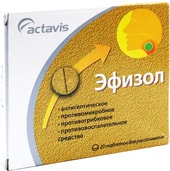
Lisinopril tablets 10mg are a common medication used to treat high blood pressure (hypertension) and heart failure. This guide provides comprehensive information about Lisinopril, including its uses, dosage, side effects, and important precautions.
Lisinopril is an ACE inhibitor, which stands for Angiotensin Converting Enzyme inhibitor. It works by blocking the production of a substance called angiotensin II, which narrows blood vessels and raises blood pressure. By lowering blood pressure, Lisinopril helps to reduce the strain on your heart and improve blood flow.
Lisinopril is prescribed for various conditions, including:
Before taking Lisinopril, it's crucial to discuss your health history with your doctor, as it may not be suitable for everyone. Here are some important precautions to be aware of:
The dosage of Lisinopril varies depending on the condition being treated and the individual's response. It is typically taken once daily, with or without food. It is essential to follow your doctor's instructions and not change the dosage without consulting them.
Common side effects of Lisinopril include:
More serious side effects can occur, but they are rare.
Contact your doctor immediately if you experience:
Lisinopril can interact with other medications, including:
Always inform your doctor about all the medications you are taking, including over-the-counter drugs and herbal supplements.
Lisinopril tablets are available by prescription only. It is important to obtain this medication from a reputable pharmacy and to follow your doctor's instructions carefully.
Lisinopril is an effective medication for managing high blood pressure and heart failure. It is important to use this medication under the supervision of a healthcare professional to ensure its safe and effective use. Always consult your doctor before starting Lisinopril or any other medication to discuss its potential benefits, risks, and interactions with your existing medical conditions and medications.
This information is for general knowledge and informational purposes only and does not constitute medical advice. Always consult with a qualified healthcare professional regarding any medical concerns or before making any decisions related to your health or treatment.





